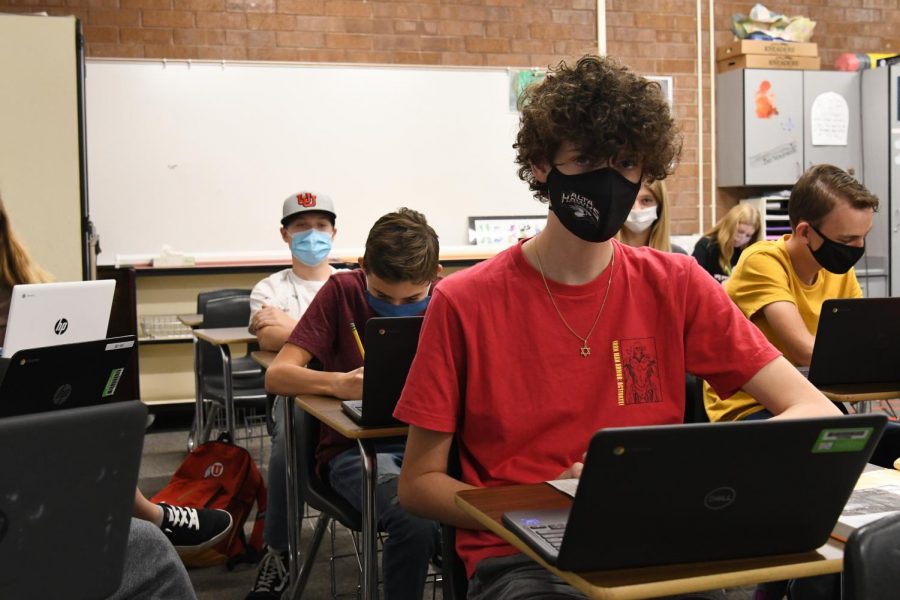Students spend hours each day working from chromebooks in and outside of class. Studies show that too much screen time disrupts sleep patterns.
Does Increased Screen from the Time Have Side Effects?
It is fair to say that the Coronavirus pandemic and the quarantine that ensued brought a dramatic change to the way we work, learn, meet, worship, shop for groceries, order take out, have doctor appointments, seek entertainment, socialize and connect with people. All of these activities were suddenly pivoted and channeled through a screen be it a computer, tablet or phone.
This new norm puts students day in and day out in front of a screen. As classes transitioned to online format, students were issued Chromebooks to participate and complete the day’s work therefore exponentially surging students’ daily screen time.
Sleep is disrupted with blue light-emitting screen devices before bedtime. In turn, this blue light suppresses secretion of the hormone melatonin. Teens that stay up late texting or facetiming not only get less shut eye, they also lack the deep REM sleep essential for processing and storing information from the day into memory. This obviously impacts school performance and processing of information.
In an online comment section student Ethan Bailey remarked , “Yeah, I’ve definitely been spending a lot more time on my computer since school started back up. I use my Chromebook in every class essentially all day every day so that’s about 5-6 hours and when I get home I’m doing homework for another 2-3 hours. And that’s not even including the time I spend on my phone and other stuff.”
Many other students agreed saying that although they have been using computers to their advantage to turn in assignments faster which have raised their grades, it has also significantly affected their mental health.
“My parents have been pretty strict with Covid and all that so the only way I have to socialize with anybody outside of school is with FaceTime, social media, etc.”
When students were asked about their post-pandemic screen habits, Callie Brock responded saying, “I spend about 4-6 hours on my computer for school, then after school, I’m on facetime with my friends until about 11pm (so about 5-6 hours), and during that time sometimes we just talk or we play games. Then I ‘go to sleep’ until around 12 then get back on a call with my friend and we fall asleep on facetime as opposed to what was about five hours before the pandemic.”
As school and learning has changed, most have not altered how much time is spent on a screen with friends or streaming a movie or other activities and that has created a tethering to screens that impacts our brains negatively, particularly a developing brain. Science has proven that the more screen time a teenager is exposed to the greater the impact in their mental and physical health.
While there are many other negative effects of too much screen time on a developing brain, including how it is rewiring its thought patterns, impulse control and even creating addictive behaviors, there are ways to manage and set limits and take brakes. While not all screen time is bad and in fact it has made aspects of learning, meeting and doing many things easier, there must be a warning sign and limits set so the technology available today is used to our advantage instead of having a negative impact on our lives.

